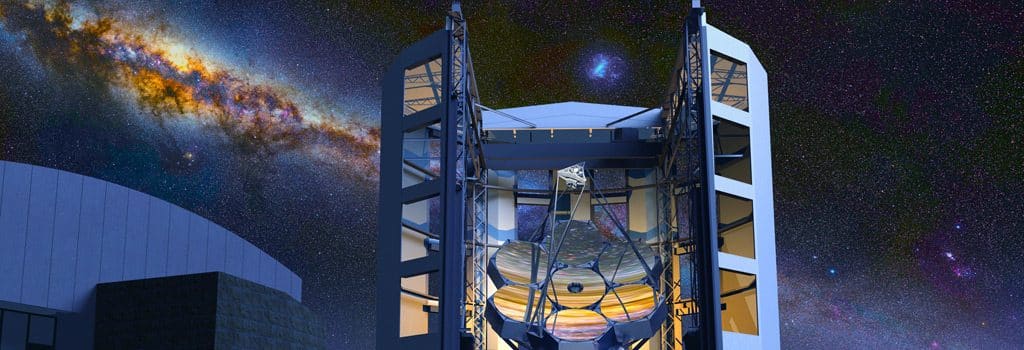The Giant Magellan Telescope (GMT), will be the biggest Earth-based optical telescope ever built to explore the deepest secrets of the universe. It will be one of the super-giant optical telescopes that revolutionize our view of understanding the universe. It will be operational in about 10 years and will be located in Chile. “The Giant Magellan Telescope project has been building up to this point over several years,” said Director of the ANU Research School of Astronomy and Astrophysics. “GMT reveals the first objects to emit light in the universe, and also probe the mysteries of dark energy and dark matter; dark energy and black holes”, said Wendy Freedman, chair of the Giant Magellan Telescope Organization (GMTO) board of directors and university professor of astronomy and astrophysics at the University of Chicago. Project Highlights:
The Australian National University (ANU) is one of the global partners in this project, which will have a collection area six times the area of the largest telescopes today. This will provide clear images of planets around other stars and the most distant galaxies in the Universe. GMT has seven mirrors spanning a single reflective surface of 25 meters — it will be able to produce spectacular images, 10 times sharper than ones taken by the Hubble Space Telescope, GMTO says. The telescope will be built near the existing large telescopes in a huge dome structure 22 stories high in the dry air of Chile’s Atacama Desert. A subsequent review also examined and approved the cost estimates for the project. Cost Estimation: ANU received $88.1 million from the Education Investment Fund to support Australia’s involvement in the GMT. The $1 billion telescope has secured half of its funding, with 11 international partners, and is expected to see first light in 2021, becoming fully operational by 2024. Future Inventions: In the next few decades the bigger telescopes, like the European Extremely Large Telescope, will help us answer some of the big questions, telling us whether planets like our own are common in the universe? Where do we come from? Are there other habitable planets like our own? And so on. This GMT’s incredible mirrors are expected to offer the scientists with high-quality images of the universe. we will see the animation of this giant GMT to understand how it actually looks like. Messy said this telescope will be very useful to young people who pursue their careers in science and engineering, and the scientists and engineers will be lucky enough to work on them and apply those techniques.
